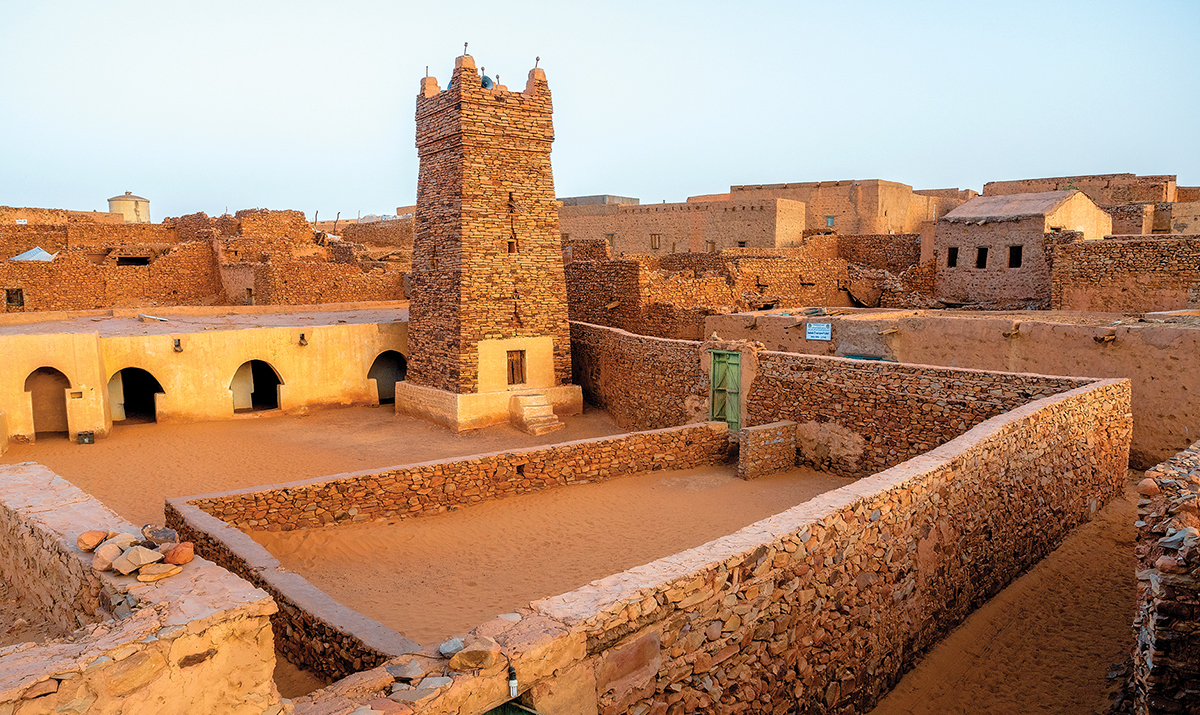
27 Nov Private sector is key to driving development
Business leaders are playing a crucial role in economic diversification and improving the nation’s investment environment
As the World Bank notes in its 2022 report on the country’s economy, Mauritania benefits from a resilient and employment-creating private sector that is central to the nation’s ongoing economic transformation and diversification. Mohamed Zine El Abidine Ould Cheikh Ahmed, president of the Union Nationale du Patronat Mauritanien (National Union of Mauritanian Employers/UNPM) expands on the sector’s significance: “Working in close consultation with the government, the private sector plays a leading role in Mauritania, with 90% of jobs generated in Mauritania coming from companies.”
Set up in 1957, UNPM is the umbrella organization representing all businesspeople in the country, which is made up of 18 separate sector-specific federations that together cover every area of the economy. It is also the conduit for the nation’s public-private consultative efforts to develop the economy that have become more expansive since 2019.
“UNPM is the sole interlocutor between the government and the private sector, according to a 2017 decree. President Mohamed Cheikh El Ghazouani understands the importance of the private sector, which he considers to be the engine of the economy, and he is particularly attentive to our members’ needs,” explains Ahmed. “Four years ago, for instance, the government created an interministerial committee to monitor the business climate, which UNPM is a member of. The committee meets every month and evaluates obstacles to be addressed and areas for improvement to be worked on. This committee has enabled Mauritania to make great progress on its business climate.”
Ahmed is very upbeat about the country’s economic prospects. “I have noticed a real economic boom in Mauritania over the last two years and I am convinced that this will accelerate further next year once the country starts exporting natural gas. In addition, the government’s establishment of a High Council for Investment will help bring investors closer to Mauritania. We have good infrastructure, a framework conducive to investments and great potential in various sectors, particularly renewable energies,” states Ahmed.
“UNPM is a partner and a supporter for investors in all industries and major foreign companies have already invested in Mauritania’s mining and hydrocarbons sectors. As an illustration of the country’s attractiveness to investors, in the last two years we have welcomed 40 new gold factories, each of which is processing and producing 1,400 ounces of gold per month.”
Agriculture is another buoyant industry that is supporting the nation’s sustained economic growth. “Mauritania benefits from 400 billion cubic feet of water and 594,000 hectares of arable land, so it offers very rich agricultural potential. The Mauritanian private sector currently cultivates two seasons of rice a year amounting to approximately 120,000 hectares, which covers almost all our domestic needs in that crop. We have also diversified our production into watermelon and millet, for example,” Ahmed details.
“The livestock sector is an important pillar of our economy a well, representing around 10% of gross domestic product and employing 10% of the active population. Mauritania is very prosperous in the field of fishing too and that sector has grown significantly over the last four years: by 2022, we had 80 fish freezing and processing plants. We also have many import-export companies in Mauritania, as we import 90% of our needs and we re-export a lot of goods to neighboring countries.”
Productive and logistics businesses in the country gain from its membership of trade blocs such as the Economic Community of West African States, which offers duty-free access to more than 300 million consumers in 15 nation states. And the opportunities for companies in those sectors are about to multiple, as a result of the government’s investment in infrastructure to secure Mauritania’s position as a regional trade center and the upcoming launch of the African Continental Free Trade Area, which will be the world’s largest free trade area, covering 1.3 billion people in 55 countries with a total GDP of $3.4 trillion in 2022.
Building up industrial capabilities
As well as representing its members before public authorities and contributing to the design and implementation of governmental economic strategies, UNPM provides companies with a range of services to build their capabilities. Skills development is one example of this. “We have a lack of qualified labor in Mauritania, which represents a big problem and sometimes forces us to import foreign labor. To help alleviate that, UNPM has affiliated with schools and training centers. Each year, we inform the state about our members’ professional training needs and education institutes take this into consideration,” says Ahmed.
“We also provide training to encourage entrepreneurs and enable them to access markets and calls for tender. We strongly support the creation of new businesses and carry out numerous activities in that regard, many of which are aimed at women and young people.”
UNPM works hard to promote its members and the country’s investment opportunities on the international stage as well. For example, it maintains close relationships with embassies in Mauritania, it regularly hosts forums for global business groups and it has signed a range of cooperative agreements with public and private sector entities from nations such as Kuwait, Saudi Arabia, Morocco, Algeria, Qatar, Germany and France.
“In my opinion, American investors have not yet realized Mauritania’s potential across different economic sectors. We have trade with the US, but many of our exports pass through European countries first, which is a shame because, geographically speaking, we are the closest country to the US. However, I believe that once the Kosmos and BP natural gas projects begin operations, they will attract the attention of US investors to other Mauritanian sectors,” states Ahmed. “We have a lot of opportunities in several areas, we need investors and, moreover, at the end of 2023 we will have a new investment code. US investors can be reassured that they will find a reliable and stable partner in Mauritania.”
